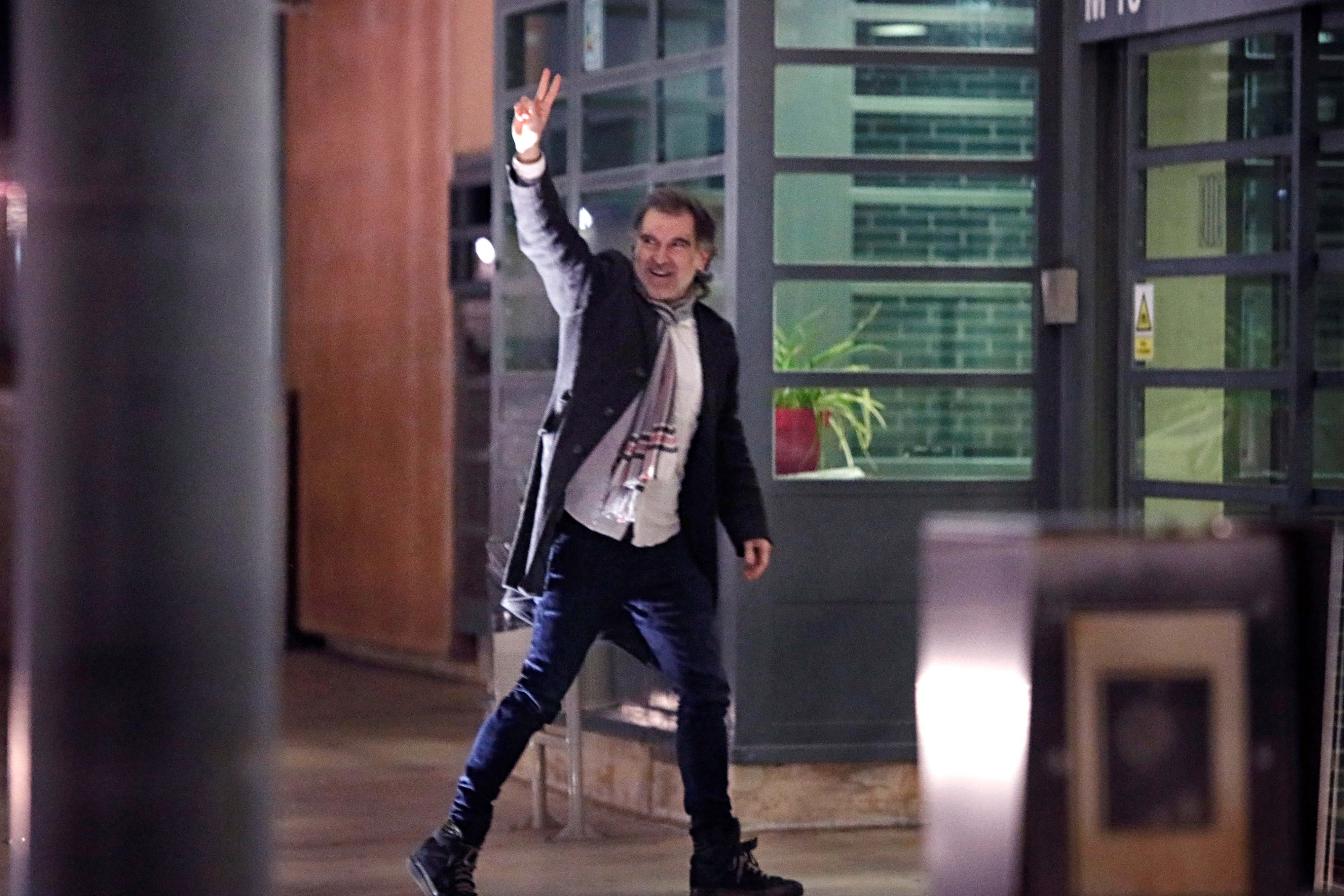Spanish public prosecutors have opposed the granting of a three-day leave from prison requested by Catalan pro-independence activist Jordi Cuixart, even though it is viewed favourably by the assessment board within the prison itself. The prosecutors consider it premature to grant the request, which is the second leave requested by Cuixart, and they give several reasons, including arguments that he has not yet served enough of his nine year jail sentence to justify it, and has failed to show repentance for his crimes.
In a submission presented to the prison supervisory court, the prosecutors conclude that the leave is unjustified because of Cuixart's "failure to assume [responsibility for] his criminal actions and [his] lack of repentance." They further argue that the leave is inappropriate due to the absence of "prison treatment" to overcome Cuixart's "detected deficits". The final decision will be up to the judge.
Cuixart, president of the pro-independence Òmnium Cultural group, took his first prison leave, 48 hours long, on January 16th. On January 23rd, the prison's assessment board approved his request for another interval outside the gates, this time for 72 hours.
The prosecutors quote jurisprudence from the Constitutional Court to argue that the requirements set down for granting leave to those serving a standard prison regime, like Cuixart, are "possibilities and not rights", and that their approval is not automatic, but rather must also respond to other legally-defined criteria. "The fact that the inmate has served a quarter of his sentence, demonstrating good or at least not bad behaviour, does not mean that it is appropriate to grant him leave in all cases," says the submission, arguing that periods of leave are an element in "preparation for life at liberty."
The public prosecutors believe that there is still "a lot of time" left until Cuixart has served three-quarters of his sentence, at which point he could be released on parole, and they consider that the goal of the leave, the "preparation for a life at liberty", is "weakened" when the leave is granted "too early."
Lack of repentance
Another reason for opposing the Jordi Cuixart's leave is, according to the prosecutors, his lack of repentance. The lawyers maintain that "it may be that he acknowledges the facts set forth in his sentence and accepts the consequences of them, but he makes his own interpretation, not considering them to be a crime" and, in the prosecutors' opinion, failing to accept the rule of law.
In this point, the report to the judge refers to Cuixart's statements during the Supreme Court trial last year, when he asserted that he "would do it again", and to the book he himself published with a similar title, Ho tornarem a fer ("We'll do it again"), in which he "sets forth, without prejudice to his freedom of expression, his position in relation to the crime for which he has been convicted."

